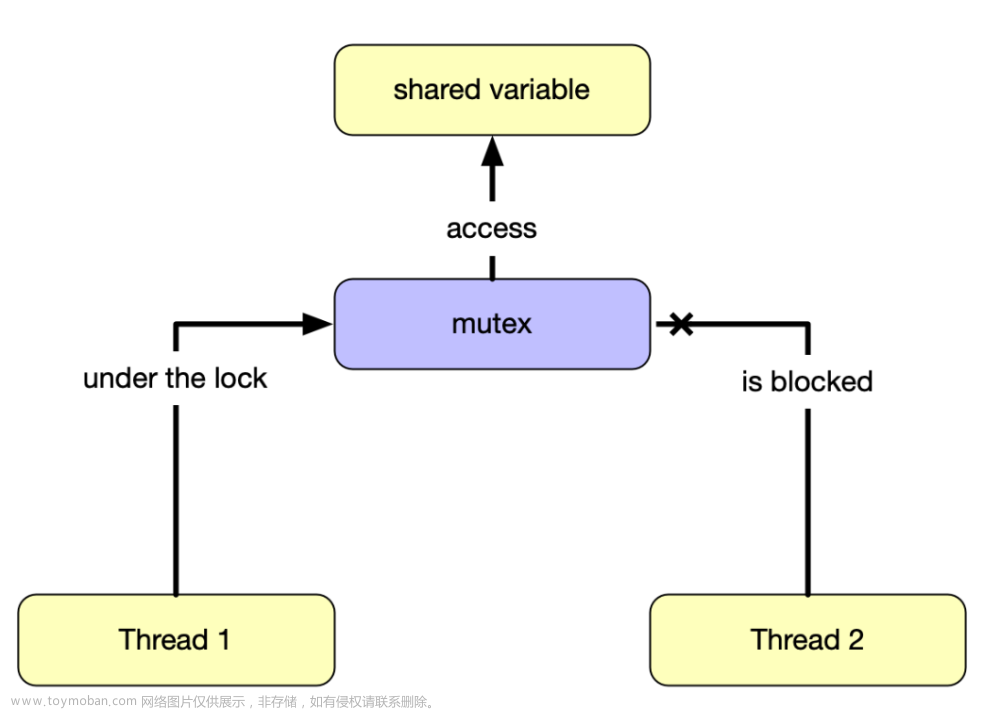最后的项目:多线程 Web 服务器
构建多线程 Web 服务器
- 在 socket 上监听 TCP 连接
- 解析少量的 HTTP 请求
- 创建一个合适的 HTTP 响应
- 使用线程池改进服务器的吞吐量
- 优雅的停机和清理
- 注意:并不是最佳实践
创建项目
~/rust
➜ cargo new hello
Created binary (application) `hello` package
~/rust
➜
main.rs 文件
use std::net::TcpListener;
fn main() {
let listener = TcpListener::bind("127.0.0.1:7878").unwrap();
for stream in listener.incoming() {
let stream = stream.unwrap();
println!("Connection established!");
}
}
修改一:
use std::io::prelude::*;
use std::net::TcpListener;
use std::net::TcpStream;
fn main() {
let listener = TcpListener::bind("127.0.0.1:7878").unwrap();
for stream in listener.incoming() {
let stream = stream.unwrap();
handle_connection(stream);
}
}
fn handle_connection(mut stream: TcpStream) {
let mut buffer = [0; 512];
stream.read(&mut buffer).unwrap();
println!("Request: {}", String::from_utf8_lossy(&buffer[..]));
}
修改二:
use std::io::prelude::*;
use std::net::TcpListener;
use std::net::TcpStream;
fn main() {
let listener = TcpListener::bind("127.0.0.1:7878").unwrap();
for stream in listener.incoming() {
let stream = stream.unwrap();
handle_connection(stream);
}
}
fn handle_connection(mut stream: TcpStream) {
let mut buffer = [0; 512];
stream.read(&mut buffer).unwrap();
// 请求
// Method Request-URI HTTP-Version CRLF
// headers CRLF
// message-body
// 响应
// HTTP-Version Status-Code Reason-Phrase CRLF
// headers CRLF
// message-body
let response = "HTTP/1.1 200 OK\r\n\r\n";
stream.write(response.as_bytes()).unwrap();
stream.flush().unwrap();
println!("Request: {}", String::from_utf8_lossy(&buffer[..]));
}
修改三:
use std::fs;
use std::io::prelude::*;
use std::net::TcpListener;
use std::net::TcpStream;
fn main() {
let listener = TcpListener::bind("127.0.0.1:7878").unwrap();
for stream in listener.incoming() {
let stream = stream.unwrap();
handle_connection(stream);
}
}
fn handle_connection(mut stream: TcpStream) {
let mut buffer = [0; 512];
stream.read(&mut buffer).unwrap();
// 请求
// Method Request-URI HTTP-Version CRLF
// headers CRLF
// message-body
// 响应
// HTTP-Version Status-Code Reason-Phrase CRLF
// headers CRLF
// message-body
let contents = fs::read_to_string("hello.html").unwrap();
let response = format!("HTTP/1.1 200 OK\r\n\r\n{}", contents);
stream.write(response.as_bytes()).unwrap();
stream.flush().unwrap();
}
修改四:
use std::fs;
use std::io::prelude::*;
use std::net::TcpListener;
use std::net::TcpStream;
fn main() {
let listener = TcpListener::bind("127.0.0.1:7878").unwrap();
for stream in listener.incoming() {
let stream = stream.unwrap();
handle_connection(stream);
}
}
fn handle_connection(mut stream: TcpStream) {
let mut buffer = [0; 512];
stream.read(&mut buffer).unwrap();
let get = b"GET / HTTP/1.1\r\n";
if buffer.starts_with(get) {
let contents = fs::read_to_string("hello.html").unwrap();
let response = format!("HTTP/1.1 200 OK\r\n\r\n{}", contents);
stream.write(response.as_bytes()).unwrap();
stream.flush().unwrap();
} else {
let status_line = "HTTP/1.1 404 NOT FOUND\r\n\r\n";
let contents = fs::read_to_string("404.html").unwrap();
let response = format!("{}{}", status_line, contents);
stream.write(response.as_bytes()).unwrap();
stream.flush().unwrap();
}
}
修改五:
use std::fs;
use std::io::prelude::*;
use std::net::TcpListener;
use std::net::TcpStream;
fn main() {
let listener = TcpListener::bind("127.0.0.1:7878").unwrap();
for stream in listener.incoming() {
let stream = stream.unwrap();
handle_connection(stream);
}
}
fn handle_connection(mut stream: TcpStream) {
let mut buffer = [0; 512];
stream.read(&mut buffer).unwrap();
let get = b"GET / HTTP/1.1\r\n";
let (status_line, filename) = if buffer.starts_with(get) {
("HTTP/1.1 200 OK\r\n\r\n", "hello.html")
} else {
("HTTP/1.1 404 NOT FOUND\r\n\r\n", "404.html")
};
let contents = fs::read_to_string(filename).unwrap();
let response = format!("{}{}", status_line, contents);
stream.write(response.as_bytes()).unwrap();
stream.flush().unwrap();
}
hello.html 文件
<!DOCTYPE html>
<html lang="en">
<head>
<meta charset="utf-8">
<title>Hello</title>
</head>
<body>
<h1>Hello</h1>
<p>Hi from Rust</p>
</body>
</html>
404.html 文件
<!DOCTYPE html>
<html lang="en">
<head>
<meta charset="utf-8">
<title>Hello!</title>
</head>
<body>
<h1>Oops!</h1>
<p>Sorry, I don't know what you're asking for.</p>
</body>
</html>
单线程Web服务器
use std::fs;
use std::thread;
use std::io::prelude::*;
use std::net::TcpListener;
use std::net::TcpStream;
use std::time::Duration;
fn main() {
let listener = TcpListener::bind("127.0.0.1:7878").unwrap();
for stream in listener.incoming() {
let stream = stream.unwrap();
handle_connection(stream);
}
}
fn handle_connection(mut stream: TcpStream) {
let mut buffer = [0; 512];
stream.read(&mut buffer).unwrap();
let get = b"GET / HTTP/1.1\r\n";
let sleep = b"GET /sleep HTTP/1.1\r\n";
let (status_line, filename) = if buffer.starts_with(get) {
("HTTP/1.1 200 OK\r\n\r\n", "hello.html")
} else if buffer.starts_with(sleep) {
thread::sleep(Duration::from_secs(5));
("HTTP/1.1 200 OK\r\n\r\n", "hello.html")
} else {
("HTTP/1.1 404 NOT FOUND\r\n\r\n", "404.html")
};
let contents = fs::read_to_string(filename).unwrap();
let response = format!("{}{}", status_line, contents);
stream.write(response.as_bytes()).unwrap();
stream.flush().unwrap();
}
开启线程
use std::fs;
use std::thread;
use std::io::prelude::*;
use std::net::TcpListener;
use std::net::TcpStream;
use std::time::Duration;
fn main() {
let listener = TcpListener::bind("localhost:7878").unwrap();
for stream in listener.incoming() {
let stream = stream.unwrap();
thread::spawn(|| {
handle_connection(stream);
});
}
}
fn handle_connection(mut stream: TcpStream) {
let mut buffer = [0; 512];
stream.read(&mut buffer).unwrap();
let get = b"GET / HTTP/1.1\r\n";
let sleep = b"GET /sleep HTTP/1.1\r\n";
let (status_line, filename) = if buffer.starts_with(get) {
("HTTP/1.1 200 OK\r\n\r\n", "hello.html")
} else if buffer.starts_with(sleep) {
thread::sleep(Duration::from_secs(5));
("HTTP/1.1 200 OK\r\n\r\n", "hello.html")
} else {
("HTTP/1.1 404 NOT FOUND\r\n\r\n", "404.html")
};
let contents = fs::read_to_string(filename).unwrap();
let response = format!("{}{}", status_line, contents);
stream.write(response.as_bytes()).unwrap();
stream.flush().unwrap();
}
lib.rs 文件
use std::thread;
pub struct ThreadPool {
threads: Vec<thread::JoinHandle<()>>,
}
impl ThreadPool {
/// Creates a new ThreadPool.
///
/// The size is the number of threads in the pool.
///
/// # Panics
///
/// The `new` function will panic if the size is zero.
pub fn new(size: usize) -> ThreadPool {
assert!(size > 0);
let mut threads = Vec::with_capacity(size);
for _ in 0..size {
// create some threads and store them in the vector
}
ThreadPool { threads }
}
pub fn execute<F>(&self, f: F)
where
F: FnOnce() + Send + 'static,
{
}
}
lib.rs 修改一
use std::thread;
pub struct ThreadPool {
workers: Vec<Worker>,
}
impl ThreadPool {
/// Creates a new ThreadPool.
///
/// The size is the number of threads in the pool.
///
/// # Panics
///
/// The `new` function will panic if the size is zero.
pub fn new(size: usize) -> ThreadPool {
assert!(size > 0);
let mut workers = Vec::with_capacity(size);
for id in 0..size {
workers.push(Worker::new(id));
}
ThreadPool { workers }
}
pub fn execute<F>(&self, f: F)
where
F: FnOnce() + Send + 'static,
{
}
}
struct Worker {
id: usize,
thread: thread::JoinHandle<()>,
}
impl Worker {
fn new(id: usize) -> Worker {
let thread = thread::spawn(|| {});
Worker { id, thread }
}
}
lib.rs 修改二
use std::thread;
use std::sync::mpsc;
pub struct ThreadPool {
workers: Vec<Worker>,
sender: mpsc::Sender<Job>,
}
struct Job;
impl ThreadPool {
/// Creates a new ThreadPool.
///
/// The size is the number of threads in the pool.
///
/// # Panics
///
/// The `new` function will panic if the size is zero.
pub fn new(size: usize) -> ThreadPool {
assert!(size > 0);
let (sender, receiver) = mpsc::channel();
let mut workers = Vec::with_capacity(size);
for id in 0..size {
workers.push(Worker::new(id, receiver));
}
ThreadPool { workers, sender }
}
pub fn execute<F>(&self, f: F)
where
F: FnOnce() + Send + 'static,
{
}
}
struct Worker {
id: usize,
thread: thread::JoinHandle<()>,
}
impl Worker {
fn new(id: usize, receiver: mpsc::Receiver<Job>) -> Worker {
let thread = thread::spawn(|| {
receiver;
});
Worker { id, thread }
}
}
lib.rs 修改三
use std::thread;
use std::sync::mpsc;
use std::sync::Arc;
use std::sync::Mutex;
pub struct ThreadPool {
workers: Vec<Worker>,
sender: mpsc::Sender<Job>,
}
struct Job;
impl ThreadPool {
/// Creates a new ThreadPool.
///
/// The size is the number of threads in the pool.
///
/// # Panics
///
/// The `new` function will panic if the size is zero.
pub fn new(size: usize) -> ThreadPool {
assert!(size > 0);
let (sender, receiver) = mpsc::channel();
let receiver = Arc::new(Mutex::new(receiver));
let mut workers = Vec::with_capacity(size);
for id in 0..size {
workers.push(Worker::new(id, Arc::clone(&receiver)));
}
ThreadPool { workers, sender }
}
pub fn execute<F>(&self, f: F)
where
F: FnOnce() + Send + 'static,
{
}
}
struct Worker {
id: usize,
thread: thread::JoinHandle<()>,
}
impl Worker {
fn new(id: usize, receiver: Arc<Mutex<mpsc::Receiver<Job>>>) -> Worker {
let thread = thread::spawn(|| {
receiver;
});
Worker { id, thread }
}
}
lib.rs 修改四
use std::thread;
use std::sync::mpsc;
use std::sync::Arc;
use std::sync::Mutex;
pub struct ThreadPool {
workers: Vec<Worker>,
sender: mpsc::Sender<Job>,
}
// struct Job;
type Job = Box<FnOnce() + Send + 'static>;
impl ThreadPool {
/// Creates a new ThreadPool.
///
/// The size is the number of threads in the pool.
///
/// # Panics
///
/// The `new` function will panic if the size is zero.
pub fn new(size: usize) -> ThreadPool {
assert!(size > 0);
let (sender, receiver) = mpsc::channel();
let receiver = Arc::new(Mutex::new(receiver));
let mut workers = Vec::with_capacity(size);
for id in 0..size {
workers.push(Worker::new(id, Arc::clone(&receiver)));
}
ThreadPool { workers, sender }
}
pub fn execute<F>(&self, f: F)
where
F: FnOnce() + Send + 'static,
{
let job = Box::new(f);
self.sender.send(job).unwrap();
}
}
struct Worker {
id: usize,
thread: thread::JoinHandle<()>,
}
impl Worker {
fn new(id: usize, receiver: Arc<Mutex<mpsc::Receiver<Job>>>) -> Worker {
let thread = thread::spawn(move || loop {
let job = receiver.lock().unwrap().recv().unwrap();
println!("Worker {} got a job; executing.", id);
(*job)();
});
Worker { id, thread }
}
}
lib.rs 修改五
use std::thread;
use std::sync::mpsc;
use std::sync::Arc;
use std::sync::Mutex;
pub struct ThreadPool {
workers: Vec<Worker>,
sender: mpsc::Sender<Job>,
}
// struct Job;
// type Job = Box<FnOnce() + Send + 'static>;
impl ThreadPool {
/// Creates a new ThreadPool.
///
/// The size is the number of threads in the pool.
///
/// # Panics
///
/// The `new` function will panic if the size is zero.
pub fn new(size: usize) -> ThreadPool {
assert!(size > 0);
let (sender, receiver) = mpsc::channel();
let receiver = Arc::new(Mutex::new(receiver));
let mut workers = Vec::with_capacity(size);
for id in 0..size {
workers.push(Worker::new(id, Arc::clone(&receiver)));
}
ThreadPool { workers, sender }
}
pub fn execute<F>(&self, f: F)
where
F: FnOnce() + Send + 'static,
{
let job = Box::new(f);
self.sender.send(job).unwrap();
}
}
struct Worker {
id: usize,
thread: thread::JoinHandle<()>,
}
trait FnBox {
fn call_box(self: Box<Self>);
}
impl<F: FnOnce()> FnBox for F {
fn call_box(self: Box<F>) {
(*self)()
}
}
type Job = Box<dyn FnBox + Send + 'static>;
impl Worker {
fn new(id: usize, receiver: Arc<Mutex<mpsc::Receiver<Job>>>) -> Worker {
let thread = thread::spawn(move || loop {
let job = receiver.lock().unwrap().recv().unwrap();
println!("Worker {} got a job; executing.", id);
// (*job)();
job.call_box();
});
Worker { id, thread }
}
}
lib.rs 修改六
use std::sync::mpsc;
use std::sync::Arc;
use std::sync::Mutex;
use std::thread;
pub struct ThreadPool {
workers: Vec<Worker>,
sender: mpsc::Sender<Job>,
}
// struct Job;
// type Job = Box<FnOnce() + Send + 'static>;
impl ThreadPool {
/// Creates a new ThreadPool.
///
/// The size is the number of threads in the pool.
///
/// # Panics
///
/// The `new` function will panic if the size is zero.
pub fn new(size: usize) -> ThreadPool {
assert!(size > 0);
let (sender, receiver) = mpsc::channel();
let receiver = Arc::new(Mutex::new(receiver));
let mut workers = Vec::with_capacity(size);
for id in 0..size {
workers.push(Worker::new(id, Arc::clone(&receiver)));
}
ThreadPool { workers, sender }
}
pub fn execute<F>(&self, f: F)
where
F: FnOnce() + Send + 'static,
{
let job = Box::new(f);
self.sender.send(job).unwrap();
}
}
struct Worker {
id: usize,
thread: thread::JoinHandle<()>,
}
trait FnBox {
fn call_box(self: Box<Self>);
}
impl<F: FnOnce()> FnBox for F {
fn call_box(self: Box<F>) {
(*self)()
}
}
type Job = Box<dyn FnBox + Send + 'static>;
impl Worker {
fn new(id: usize, receiver: Arc<Mutex<mpsc::Receiver<Job>>>) -> Worker {
let thread = thread::spawn(move || loop {
while let Ok(job) = receiver.lock().unwrap().recv() {
println!("Worker {} got a job; executing.", id);
job.call_box();
}
});
Worker { id, thread }
}
}
优雅的停机和清理
use std::sync::mpsc;
use std::sync::Arc;
use std::sync::Mutex;
use std::thread;
pub struct ThreadPool {
workers: Vec<Worker>,
sender: mpsc::Sender<Job>,
}
// struct Job;
// type Job = Box<FnOnce() + Send + 'static>;
impl ThreadPool {
/// Creates a new ThreadPool.
///
/// The size is the number of threads in the pool.
///
/// # Panics
///
/// The `new` function will panic if the size is zero.
pub fn new(size: usize) -> ThreadPool {
assert!(size > 0);
let (sender, receiver) = mpsc::channel();
let receiver = Arc::new(Mutex::new(receiver));
let mut workers = Vec::with_capacity(size);
for id in 0..size {
workers.push(Worker::new(id, Arc::clone(&receiver)));
}
ThreadPool { workers, sender }
}
pub fn execute<F>(&self, f: F)
where
F: FnOnce() + Send + 'static,
{
let job = Box::new(f);
self.sender.send(job).unwrap();
}
}
impl Drop for ThreadPool {
fn drop(&mut self) {
for worker in &mut self.workers {
println!("Shutting down worker {}", worker.id);
worker.thread.join().unwrap()
}
}
}
struct Worker {
id: usize,
thread: thread::JoinHandle<()>,
}
trait FnBox {
fn call_box(self: Box<Self>);
}
impl<F: FnOnce()> FnBox for F {
fn call_box(self: Box<F>) {
(*self)()
}
}
type Job = Box<dyn FnBox + Send + 'static>;
impl Worker {
fn new(id: usize, receiver: Arc<Mutex<mpsc::Receiver<Job>>>) -> Worker {
let thread = thread::spawn(move || loop {
while let Ok(job) = receiver.lock().unwrap().recv() {
println!("Worker {} got a job; executing.", id);
job.call_box();
}
});
Worker { id, thread }
}
}
修改优化一:
use std::sync::mpsc;
use std::sync::Arc;
use std::sync::Mutex;
use std::thread;
pub struct ThreadPool {
workers: Vec<Worker>,
sender: mpsc::Sender<Job>,
}
// struct Job;
// type Job = Box<FnOnce() + Send + 'static>;
impl ThreadPool {
/// Creates a new ThreadPool.
///
/// The size is the number of threads in the pool.
///
/// # Panics
///
/// The `new` function will panic if the size is zero.
pub fn new(size: usize) -> ThreadPool {
assert!(size > 0);
let (sender, receiver) = mpsc::channel();
let receiver = Arc::new(Mutex::new(receiver));
let mut workers = Vec::with_capacity(size);
for id in 0..size {
workers.push(Worker::new(id, Arc::clone(&receiver)));
}
ThreadPool { workers, sender }
}
pub fn execute<F>(&self, f: F)
where
F: FnOnce() + Send + 'static,
{
let job = Box::new(f);
self.sender.send(job).unwrap();
}
}
impl Drop for ThreadPool {
fn drop(&mut self) {
for worker in &mut self.workers {
println!("Shutting down worker {}", worker.id);
if let Some(thread) = worker.thread.take() {
thread.join().unwrap();
}
}
}
}
struct Worker {
id: usize,
thread: Option<thread::JoinHandle<()>>,
}
trait FnBox {
fn call_box(self: Box<Self>);
}
impl<F: FnOnce()> FnBox for F {
fn call_box(self: Box<F>) {
(*self)()
}
}
type Job = Box<dyn FnBox + Send + 'static>;
impl Worker {
fn new(id: usize, receiver: Arc<Mutex<mpsc::Receiver<Job>>>) -> Worker {
let thread = thread::spawn(move || loop {
while let Ok(job) = receiver.lock().unwrap().recv() {
println!("Worker {} got a job; executing.", id);
job.call_box();
}
});
Worker {
id,
thread: Some(thread),
}
}
}
最终版 lib.rs 文件
use std::sync::mpsc;
use std::sync::Arc;
use std::sync::Mutex;
use std::thread;
enum Message {
NewJob(Job),
Terminate,
}
pub struct ThreadPool {
workers: Vec<Worker>,
sender: mpsc::Sender<Message>,
}
// struct Job;
// type Job = Box<FnOnce() + Send + 'static>;
impl ThreadPool {
/// Creates a new ThreadPool.
///
/// The size is the number of threads in the pool.
///
/// # Panics
///
/// The `new` function will panic if the size is zero.
pub fn new(size: usize) -> ThreadPool {
assert!(size > 0);
let (sender, receiver) = mpsc::channel();
let receiver = Arc::new(Mutex::new(receiver));
let mut workers = Vec::with_capacity(size);
for id in 0..size {
workers.push(Worker::new(id, Arc::clone(&receiver)));
}
ThreadPool { workers, sender }
}
pub fn execute<F>(&self, f: F)
where
F: FnOnce() + Send + 'static,
{
let job = Box::new(f);
self.sender.send(Message::NewJob(job)).unwrap();
}
}
impl Drop for ThreadPool {
fn drop(&mut self) {
println!("Sending terminate message to all workers.");
for _ in &mut self.workers {
self.sender.send(Message::Terminate).unwrap();
}
println!("Shutting down all workers.");
for worker in &mut self.workers {
println!("Shutting down worker {}", worker.id);
if let Some(thread) = worker.thread.take() {
thread.join().unwrap();
}
}
}
}
struct Worker {
id: usize,
thread: Option<thread::JoinHandle<()>>,
}
trait FnBox {
fn call_box(self: Box<Self>);
}
impl<F: FnOnce()> FnBox for F {
fn call_box(self: Box<F>) {
(*self)()
}
}
type Job = Box<dyn FnBox + Send + 'static>;
impl Worker {
fn new(id: usize, receiver: Arc<Mutex<mpsc::Receiver<Message>>>) -> Worker {
let thread = thread::spawn(move || loop {
let message = receiver.lock().unwrap().recv().unwrap();
match message {
Message::NewJob(job) => {
println!("Worker {} got a job; executing.", id);
job.call_box();
}
Message::Terminate => {
println!("Worker {} got a job; executing.", id);
break;
}
}
});
Worker {
id,
thread: Some(thread),
}
}
}
最终版 main.rs 文件文章来源:https://www.toymoban.com/news/detail-425246.html
use hello::ThreadPool;
use std::fs;
use std::io::prelude::*;
use std::net::TcpListener;
use std::net::TcpStream;
use std::thread;
use std::time::Duration;
fn main() {
let listener = TcpListener::bind("localhost:7878").unwrap();
let pool = ThreadPool::new(4);
for stream in listener.incoming().take(2) {
let stream = stream.unwrap();
pool.execute(|| {
handle_connection(stream);
});
}
println!("Shutting down.");
}
fn handle_connection(mut stream: TcpStream) {
let mut buffer = [0; 512];
stream.read(&mut buffer).unwrap();
let get = b"GET / HTTP/1.1\r\n";
let sleep = b"GET /sleep HTTP/1.1\r\n";
let (status_line, filename) = if buffer.starts_with(get) {
("HTTP/1.1 200 OK\r\n\r\n", "hello.html")
} else if buffer.starts_with(sleep) {
thread::sleep(Duration::from_secs(5));
("HTTP/1.1 200 OK\r\n\r\n", "hello.html")
} else {
("HTTP/1.1 404 NOT FOUND\r\n\r\n", "404.html")
};
let contents = fs::read_to_string(filename).unwrap();
let response = format!("{}{}", status_line, contents);
stream.write(response.as_bytes()).unwrap();
stream.flush().unwrap();
}
运行文章来源地址https://www.toymoban.com/news/detail-425246.html
hello on master [?] is 📦 0.1.0 via 🦀 1.67.1
➜ cargo run
Compiling hello v0.1.0 (/Users/qiaopengjun/rust/hello)
Finished dev [unoptimized + debuginfo] target(s) in 0.43s
Running `target/debug/hello`
Worker 0 got a job; executing.
Shutting down.
Sending terminate message to all workers.
Shutting down all workers.
Shutting down worker 0
Worker 1 got a job; executing.
Worker 2 got a job; executing.
Worker 3 got a job; executing.
Worker 1 got a job; executing.
Worker 0 got a job; executing.
Shutting down worker 1
Shutting down worker 2
Shutting down worker 3
hello on master [?] is 📦 0.1.0 via 🦀 1.67.1 took 21.9s
➜
到了这里,关于Rust编程语言入门之最后的项目:多线程 Web 服务器的文章就介绍完了。如果您还想了解更多内容,请在右上角搜索TOY模板网以前的文章或继续浏览下面的相关文章,希望大家以后多多支持TOY模板网!








